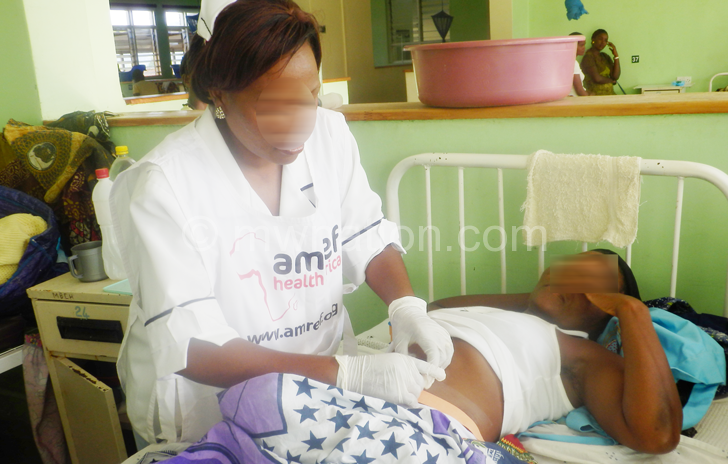‘More yet to be done about fistula’
Women are losing their marriages. Not because they could not handle their marriages well, but because they had a condition their husbands could not stand.
This is a condition that makes them produce foul smells from uncontrollable faeces and/or urine leakages. Obstetric Fistula is the condition.

May 23 is the International Day to End Obstetric Fistula. It was this year commemorated under the theme, Hope, healing, and dignity for all.
In an article in The Nation on Tuesday this week as part of the commemorations,United Nations Population Fund (UNFPA) country representative Dan Odallo indicated that ending fistula is their biggest priority and that together with its partners, the organisation has made some progress towards eliminating fistula through prevention, treatment and social reintegration.
“UNFPA has supported more than 85 000 fistula repair surgeries since 2003 and more than 15 000 cases in 2016 alone globally. But much more needs to be done. With strong political leadership, investment and action, we can end this scourge in our lifetime.
“Our efforts should aim at preventing Obstetric Fistula from occurring, repairing and restoring full reproductive health life of the women,” he said.
Odallo defines fistula as a child bearing injury caused by several days of obstructed labour without timely medical intervention, such as Caesarean section.
With prolonged labour and sustained pressure of the baby’s head on the mother’s pelvic bone, he said most of the soft tissues are damaged, creating a hole – fistula- between the vagina and the bladder and/or rectum. The result is the leaking of urine and/or faeces from the woman, causing smell.
“Almost 50 000 to 100 000 develop fistula every year. Much more needs to be done. More than two million people still live with the condition. It does not have to be this way,” said Odallo.
Youth Response for Social Change (YRSC) is a local organisation working in Machinga’s four traditional authorities.
Its programmes manager Hidjil Kalinde says in the past year alone, over 120 cases of Fistula were identified in their interventions.
“We are implementing interventions such as access to family planning services, early pregnancies, early marriages, gender-based violence (GBV) and comprehensive sexual knowledge.
“Fistula is one of the challenges we encountered and we found that it is mostly caused by early marriages,” says Kalinde in a telephone interview.
Public relations officer for Machinga District Hospital Clifton Ngozo says while working with YRSC, they identified 29 new Fistula cases in the last three months alone.
“The magnitude of Obstetric Fistula is high in this district. The good thing is that YRSC has high interest in this area and when Fistula cases are identified, the organisation often refers them to the Fistula Repair Centre at Bwaila Hospital in Lilongwe. But those that we identify as a hospital we refer to Queen Elizabeth Central Hospital [QECH],” said Ngozo.
The hospital also works hand in hand with community action groups who in turn influence women to deliver babies at health centres and in good time to avoid this condition.
Apart from that, the spokesperson said they send the hospital’s clinicians to the fistula centre in Lilongwe for trainings to handle fistula cases.





